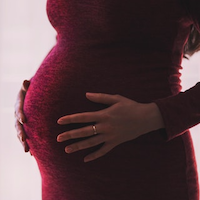Frozen Embryo Transfer Increases Risk of Childhood Cancer
Techniques involving cryopreservation may change the developing embryo.

The risk of childhood cancer is significantly increased for those who are born after frozen embryo transfer compared to those born to fertile women, findings of a recent study showed.
Marie Hargreave, PhD, a researcher of Virus, Lifestyle and Genes at Danish Cancer Society Research Center, and her colleagues conducted a retrospective cohort study to learn if there is an increased risk of cancer for children born after using specific fertility drugs and reproductive technology. The investigators used Danish population-based registry data and the Danish Infertility Cohort of nearly 1.1 million children born between 1996—2012 and found that children who were not born to fertile women had a significantly increased (44.4 vs 17.5 per 100,000 person-years; HR, 2.43) risk of cancer.
The findings suggest that techniques involving cryopreservation change the developing embryo and potentially affects intrauterine growth.
The investigators identified all children born between Jan. 1, 1996—Dec. 31, 2012 from the Danish Medical Birth Registry, which contains data on all births in Denmark. The team excluded children who were missing information on sex, maternal age at birth or multiplicity; if there were missing or implausible data on gestational length; or they died on the same day they were born.
Hargreave and her investigative team linked the study cohort to the Danish Infertility Cohort, which contained information from multiple registries about the women evaluated for fertility problems from 1963—2012. The Danish National IVF Registry had information on all treatments involving assisted reproductive technology. The investigators used data from the Danish National Prescription Registry to identify fertility drugs used.
The team evaluated the child’s risk of cancer according to maternal fertility problems during or prior to the index pregnancy; any use of fertility treatment or drugs during the index pregnancy; and any use of assisted reproductive technology during the index pregnancy compared with those born to fertile women.
During the follow-up period, which was between 1996—2015, the 1,085,172 children accumulated 12.2 million person-years of follow-up (mean, 11.3 years). During the 19 years, 2217 children were diagnosed with cancer. Nearly 84% of the children were born to fertile women, while 16.1% were born to those who required assistance getting pregnant. Among those patients, more than half (51.5%) of the children were born after using the treatment and 48.5% were born without using the treatment.
Children who were born to women treated with assisted reproductive technology or fertility drugs during pregnancy were more likely to:
- Be born during later calendar years
- Had lower birth weights and gestational ages
- Were part of a multiple birth
- Were firstborns
- Their mothers did not smoke during pregnancy
- Their parents were older and had higher educational levels
Infertility was not statistically associated with the risk of a particular type of cancer.
There was also no statistically significant association with the use of any type of fertility drugs and risk of any type of childhood cancer. In total, there were 173 cancer cases and the cancer incidence rate was 17.4 per 100,000 (HR, 1.01 [95% CI, .86—1.18]; incidence rate difference, −.1 [95% CI, −2.9 to 2.8] per 100,000).
What’s more, there was no statistically significant association with the use of any type of assisted reproductive technology and risk of any particular type of cancer. There were less than 90 cancer cases and the incidence rate was 21 per 100,000 (HR, 1.20 [95% CI, .96—1.49]; incidence rate difference, 3.5 [95% CI, -1.2 to 8.2] per 100,000).
The study, “Association Between Fertility Treatment and Cancer Risk in Children,” is published online in JAMA Network.